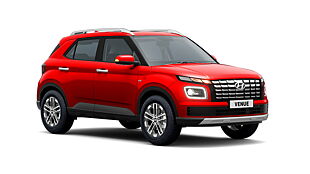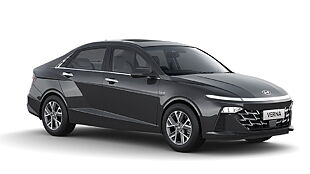i too Automatic

“Which automatic car should I buy for my dad?” our marketing head asked a day before we were to test the Hyundai i20 automatic. “Hang in there,” I said. The timing of the i20 was quite right. Our long-termer Skoda Laura(automatic) was away and after driving it for some time, I was used to the comforts of an automatic. This i20 promised the prowess of the original with a more comfortable transmission. Did it match up? I find out.
Except for the Auto and 1.4 badges, the Hyundai i20 Automatic is identical to its manual counterpart(read road test here). The car has the same clear lens head lamps and the waistline crease that rises toward the rear. On the inside too, nothing changes except the gear selector. After the facelift, the red backlit dials are now blue – a standard colour seen on all the new Hyundais.

The automatic variant of the i20 gets a 1.4-litre petrol engine which churns out 99bhp of power and 137Nm of torque. The engine comes mated to a four-speed automatic transmission with tall gears, due to which the engine doesn’t feel responsive enough. The revs do eventually grow but the power output isn’t phenomenal. In our performance run, the i20 reached 100kph in 14.5 seconds, which is due to the four-speed box. Step on the gas and the autobox does take a while to downshift. We wish the i20 came with a five-speed automatic transmission as it would have suited the drive better.
The i20 worked well on the fuel efficiency meter. In bumper-to-bumper city driving, we got a figure of 10.10kpl which is notable for automatic petrol. Even the highway figures were impressive, about 15.2kpl. We got the worst figure of 9.8kpl during our performance run.
This Korean hatchback hasn’t undergone any changes in its suspension and sports McPherson struts at its front and a torsion beam at its rear. The suspension has been set-up for better ride quality and the handling is decent. The suspension set-up suggests that the hatchback has been built to be driven in the city. It has a well-balanced chassis, but the steering does feel slack on bends.

The i20 with all the bells and whistles is a great package, and marketing head was impressed with the styling and offered features. The only aspect not in favour of the car is its pricing. The Hyundai i20 automatic costs Rs 8.76 lakhs (on-road, Mumbai) which is steep since it is a petrol automatic hatchback. But working in its favour is the fact that the i20 doesn’t have any competition in its segment. However, the SX4 automatic seems to be more value for money as it only costs Rupees 95 thousand more than the i20. However, if you’re looking for a premium hatchback with automatic transmission, the Hyundai i20 is the only option available.
Test Data
Engine Specifications
1.4-litre petrol engine, 99bhp View specifications
Speedo Error
|
Max in Gear
| Gear | Speed (kph@rpm) |
|---|---|
| 1st | 58.5@6500 |
| 2nd | 109.1@6500 |
| 3rd | 151@6000 |
| 4th | 156.2@5700 |
| 5th | |
| 6th | - |
Performance Test Data
| Top Speed | 156.2kph |
|---|---|
| 0-60kph | 6.3secs |
| 0-100kph | 14.5secs |
| Quarter Mile (402m) | 19.2secs |
| Braking 80-0kph | 27.9m |
| 30-50kph in 3rd | 3.1secs |
| 30-50kph in 4th | |
| 50-70kph in 5th | 3.9secs |
Fuel Efficiency
| City | Highway | Overall | Worst | |
|---|---|---|---|---|
| Mileage (kpl) | 10.1 | 15.2 | 11.2 | 9.8 |
![Hyundai i20 [2010-2012] Image Hyundai i20 [2010-2012] Image](https://imgd.aeplcdn.com/272x153/cw/cars/discontinued/hyundai/i20-2010-2012.jpg?q=80)























